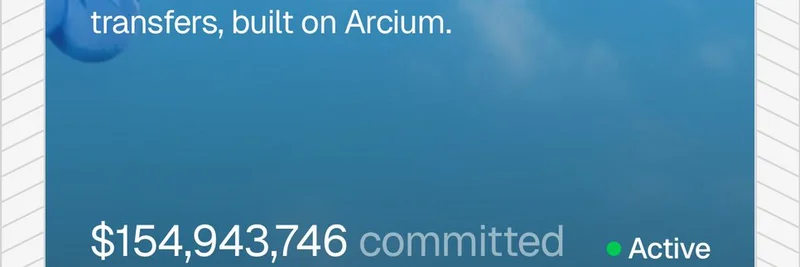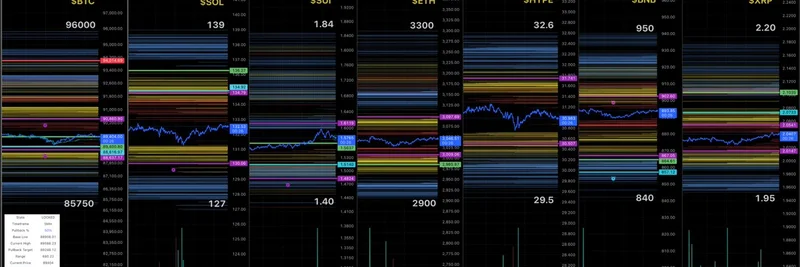In the fast-paced world of crypto, where overhyping and over-raising are all too common, a recent move by Umbra stands out as a breath of fresh air. According to a tweet from Frankie, an investor at Paradigm, Umbra—a privacy-focused protocol built on Arcium—saw a whopping $155 million in commitments during its fundraising round on MetaDAO. But instead of pocketing it all, the team decided to keep just $3 million and return the rest to investors. This isn't just good karma; it's a direct result of MetaDAO's innovative mechanism that discourages unnecessary capital hoarding.
What Happened with Umbra's Raise?
The fundraising, hosted on MetaDAO's platform, exploded beyond expectations. With a minimum target of $750,000, commitments skyrocketed to over $154 million— that's more than 20,000% of the goal. Yet, Umbra chose to cap their intake at $3 million. Why? As Frankie points out, MetaDAO's design eliminates the incentive to over-raise. Excess capital that isn't productively used simply flows back or elsewhere, promoting efficiency in what he calls "internet capital markets."
This approach ties into Umbra's tokenomics, where unlocks are tied to market cap milestones. Taking too much money upfront could inflate the fully diluted value (FDV) to unsustainable levels, like $3.2 billion, making growth harder. By keeping it lean, they aim for a more manageable $250 million FDV, setting the stage for healthier token performance.
Breaking Down Umbra: Privacy on Solana
If you're new to Umbra, think of it as "incognito mode" for your Solana transactions. Built on the Solana blockchain, Umbra leverages multi-party computation (MPC) technology from Arcium to enable confidential swaps and transfers. In simple terms, MPC allows multiple parties to compute data together without revealing individual inputs—perfect for keeping your crypto moves private.
Key features include:
- Confidential Transfers: Encrypt transactions while maintaining auditability for compliance.
- Private Swaps: Swap assets inside the Umbra app without exposing details.
- Zcash Bridge: Upcoming integration to bring privacy from Zcash to Solana.
Umbra isn't just another mixer; it addresses real pain points like private shared state and aims to make privacy a standard in DeFi. Founded by figures like @kru_tweets, it's part of Arcium's ecosystem, which focuses on encrypted supercomputing for trustless applications.
The Magic Behind MetaDAO: Futarchy and Market-Driven Governance
At the heart of this story is MetaDAO, a Solana-based platform that's flipping the script on crypto fundraising and governance. Traditional raises often involve shady private deals, low floats, and teams treating retail investors as exit liquidity. MetaDAO changes that with transparent, community-driven ICOs (Initial Coin Offerings) and a governance model called futarchy.
What's futarchy? Coined by economist Robin Hanson, it's a system where decisions are made based on prediction markets rather than votes. Here's how it works on MetaDAO:
- A proposal is submitted.
- Two markets open: one betting on the token price if it passes, another if it fails.
- Traders put skin in the game, and the outcome with the higher perceived value wins.
- This ensures decisions align with what's best for the token's value.
No more endless debates or insider biases—just market incentives keeping everyone honest. MetaDAO has already facilitated over $17 million in raises, with projects like Umbra and Omnipair succeeding. It protects investors by holding treasuries on-chain, releasing funds gradually, and routing revenues back to the DAO.
Notable adopters include established players like Drift Protocol, Jito, and Marinade Finance, proving futarchy's real-world utility.
Why This Matters for the Crypto Ecosystem
Umbra's decision highlights a shift toward sustainable growth in blockchain. In a space rife with rugs and pump-and-dumps, MetaDAO's mechanism forces projects to raise only what they need, reducing dilution and aligning incentives. For privacy protocols like Umbra, this means focusing on tech innovation— like Arcium's MPC networks—rather than hype.
This model could inspire meme token launches too, where over-raising often leads to quick dumps. Imagine meme projects using futarchy to let markets decide marketing budgets or community rewards. It's a step toward "internet capital markets," where capital flows efficiently, rewarding productive use over greed.
As crypto matures, stories like Umbra's show that honesty pays off. If you're into DeFi or privacy tech on Solana, keep an eye on Umbra and MetaDAO—they're building the future of fair fundraising.


